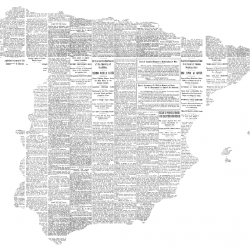Cybersecurity & Standards, European Policy, Free Expression
Ancillary Wrongs in Spain’s “Ley de Propiedad Intelectual”

Spain has made it impossible for the country’s bloggers and citizen journalists to make snippets of their works freely available to the news aggregators that drive traffic to their sites. As a result, those sites have now disappeared entirely from some news aggregators such as Google News Spain, which shuttered operations earlier this week. All of this follows from the inclusion of an editor’s (not author’s) “ancillary copyright” in snippets of news reporting and other web content in Spain’s recently enacted Ley de Propiedad Intelectual (LPI). Although a trade association representing Spain’s larger publishers urged passage of the law, smaller publishers throughout Europe have denounced its potential impact on the freedom of information and competition on the Internet:
“The ethos of our profession is to embrace freedom of information, and we are in no doubt that what is essentially an obligation to pay for links will be harmful in this respect. . . . As publishers, we know the new legislation will make it harder for us to be heard, to reach new readers and new audiences. As noted by the Spanish competition authority, the legislation creates new barriers to entry. Indeed, not only for new online services, but crucially also for news publishers such as ourselves.” ~ IGEL
Spain is not the first country to recognize a publisher’s ancillary right to royalties from news aggregators displaying snippets of its articles. Germany recently recognized such a right only to have its publishers opt out of this regime after seeing traffic to their site plummet as they were removed from certain news aggregators. Under Spain’s law, however, the right to payment is inalienable: even if a publisher did not want to charge news aggregators for displaying snippets of its articles, the law does not give them that choice.
Of the many troubling aspects of this provision, including its flat inconsistency with the Berne Convention’s protection of a right to quote, this “unwaivability” is perhaps the most troubling. News aggregators can connect publishers of all sizes and citizen journalists with audiences who care deeply about what they have to say, but the LPI imposes new terms, conditions, and costs on that connection. According to one English translation of the law, it applies to all “periodic publications” or “websites which are regularly updated for purposes of information, [or] for creation of public opinion or entertainment.” It also covers all photographs or images “disclosed in periodic publications or on websites that are regularly updated.” Thus, it arguably could prevent an amateur photographer from making her photos from her own website available to an aggregator in exchange for attribution. A third-party collection society serves as the middleman, collecting fees and distributing them to publishers (likely after deducting its operating expenses).
This is bad news for citizen journalists who provide valuable information and commentary and whose primary interest is informing and influencing discussions of issues that matter to them. The law gives them no choice in whether or how they monetize content made available for indexing by aggregators. For the same reason, the law is bad news for the evolution of creative commons licensing. Creative Commons has done tremendous work in developing an easily understood code of licensing options that allow content creators to set the parameters for how their work is shared and reused. The LPI sets a dangerous precedent for putting the creative commons off limits, as governments and collections societies – rather than content creators themselves – set the terms for online distribution.
Although the frustrations and concerns of publishers as they adapt to Internet distribution models are understandable and warranted, the LPI is exactly the wrong response to those concerns. By recognizing a new ancillary right to payment from news aggregators, Spain ignores its obligations under international agreements, the interest of its smaller publishers and citizen journalists, and the freedom of information.


